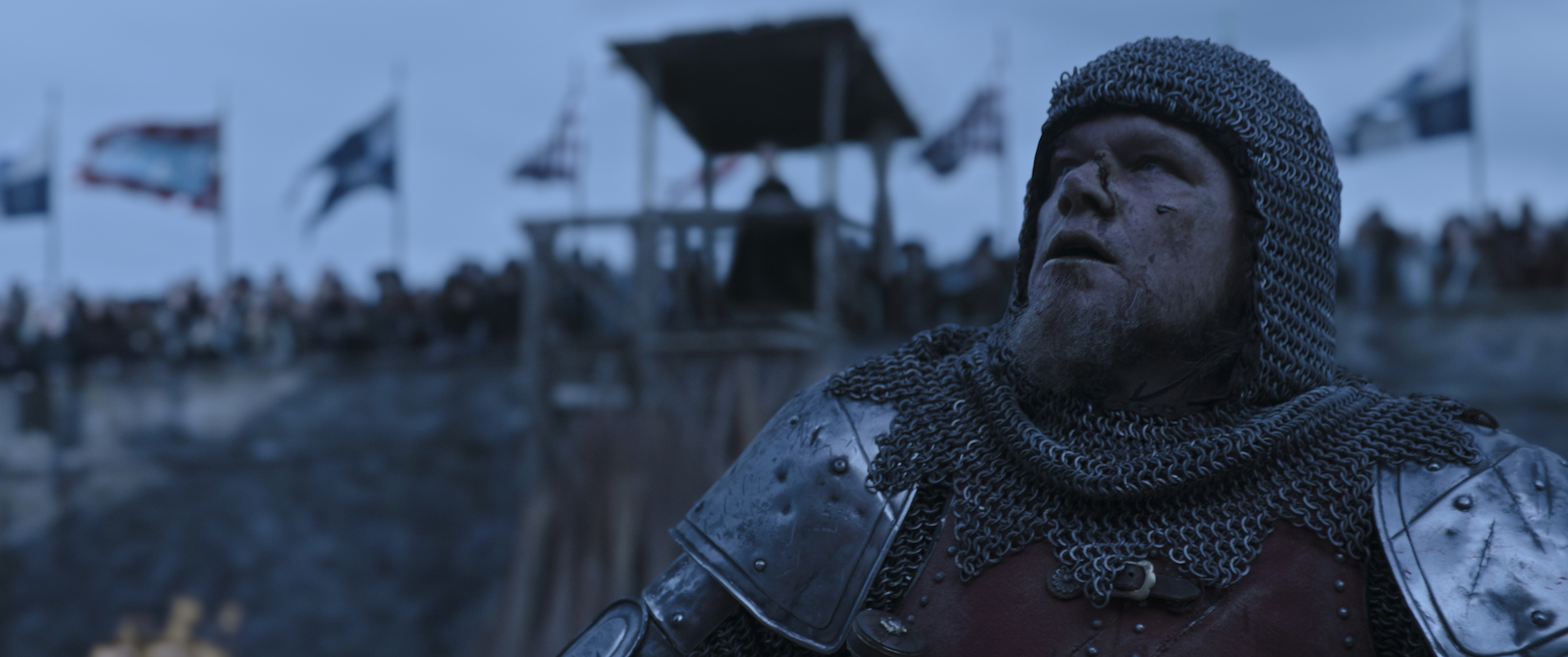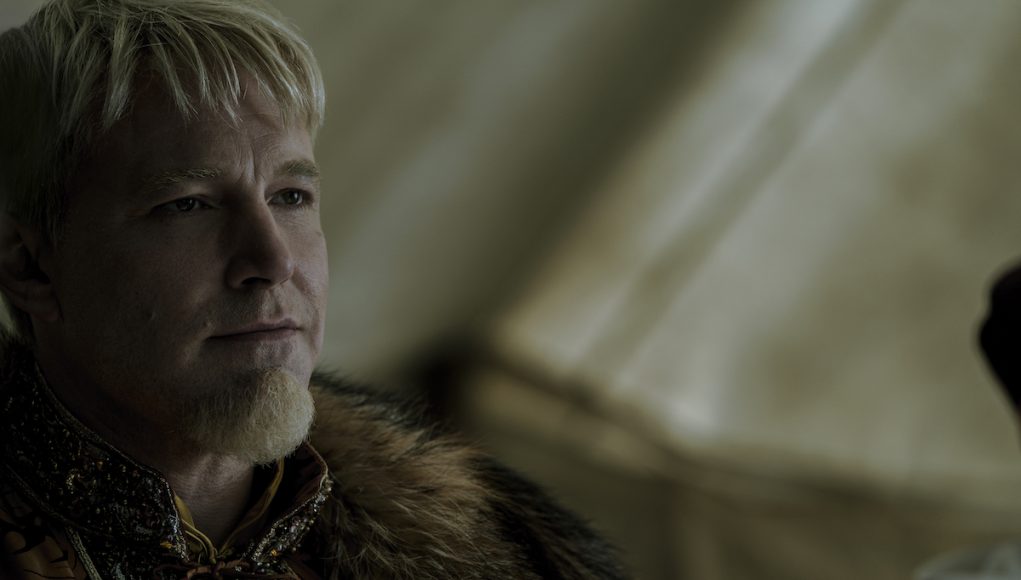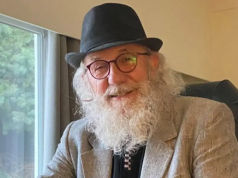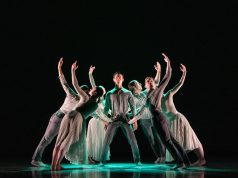Matt Damon and Ben Affleck are together again in The Last Duel.
What makes this reunion even more special is they’re not just acting. They also co-wrote the script. It’s the first time they’ve written together since winning an Oscar for Good Will Hunting, and Affleck becoming a solo writer/director. This time they invited Nicole Holofcener into their writing trio.
Damon plays Jean de Carrouges, a medieval French knight who challenges squire Jacque Le Gris (Adam Driver) to a duel to the death after Le Gris rapes de Carrouges’ wife, Marguerite (Jodie Comer). Affleck plays a count who protects Le Gris. The film is told in three chapters, one depicting de Carrouges, Le Gris and Marguerite’s perspective. Ridley Scott directs the epic film, out Oct. 15.
Damon and Affleck spoke at a Zoom press conference about writing and starring in the film.

Q: 25 years since Good Will Hunting, have there been conversations or ideas about working together again? Why this story and why now?
MD: I don’t know, that’s a really good question. I think we were kind of afraid of writing because we were so inefficient. It was so time consuming the first time we did it because we didn’t know what we were doing. It took us literally years. We wrote thousands and thousands of pages that we basically scrunched into a 130 page screenplay. But I think by just doing movies for 25 years, just by osmosis we figured out structure. So that it turned out to be really efficient, the process. And also begging an incredible writer like Nicole to come help us was also a really good idea too. That definitely streamlined the process.
BA: That’s what gave us the confidence to do it. We could rely on each other.
Q: Stories like this still happen today. How much of the cognitive dissonance did you have to map out?
BA: A lot of it. That was a very deliberate thing and part of what we wanted to point out was the extent to which corrupt and morally bankrupt institutions create, produce people who reflect those values. So rather than just an indictment of a bad person, a bad man, to say, “Well, look. You have the church, you have science, you have the court. You have this whole swath, this whole Western European civilization of which we are an antecedent culturally by and large.” At least that’s the notion of the United States is that it’s sort of result of the enlightenment and its philosophies and so forth, even though it’s usually not true. The idea is here this predominant culture comes from this other culture that is what produced these values, and this culture in terms of how it educates people, in terms of what it rewards socially, in terms of the behavior that it is encouraged like in the character that I play, sort of representing yes, could have been just a complete villain. My hope was yes, he’s a villain. He’s a horrible, horrible things but really, the idea that when a person is in power and represents these values, and says, “These are the values we encourage in you. You’ll be rewarded for following them.” It’s more about where Adam’s character is, how he’s taught to behave and what he’s rewarded for than it is about the essential nature of his character. In other words that people can be changed and created by these large institutions and that’s the value system that we wanted to indict. That required making sure yes, on an architectural level, that all those elements were included. And then you
have to just throw it away and hope that the great actors make you identify with the people so that none of that feels pedantic or like your sermons or like a term paper.
Q: What was your experience filming in Ireland?
BA: I loved it. It was wonderful, beautiful. The people were lovely. It was mitigated only by the fact that it was during the pandemic and so there was a lot of you got to shoot and then immediately had to be wrapped in your sarcophagus and separated. That’s just an added hurdle but Ireland itself was a magical, lovely place. Like many people from Boston, I grew up hearing that I was Irish but it’s an incredible place. The crew was extraordinary. Everyone was amazing. Ridley’s style of filmmaking was so impressive and exciting and energizing and made me feel so alive. You’re on camera, they’re on camera, it’s all happening. I immediately, as a director, thought I’m going to steal this. I went and did a commercial, I hired the same DP and I was like, “We gotta do it just like Ridley did it.” It was for a sports betting app so it didn’t quite hit the same. It was me and Shaquille brought a lot of humanity to it.
Q: Do you miss living there?
MD: We had the best time. Our movie shut down because of COVID the day we got to Ireland. So we stayed. We had the choice to come home to America or stay there and we’d never spent any real time there. We decided as a family, we took a family vote and we decided to stay. It was amazing. All these guys had rented these beautiful houses for three months that they abandoned because they all went back to their homes. We took them all over. We turned one into a school for our kids. We were like free rolling in a beautiful town in Ireland for three months. The community there kind of absorbed us in a really beautiful way.
Q: What were the biggest challenges or most exciting aspect of doing the same scenes from different points of view?
MD: We had it written down on the schedule whose perspective we were in always, but we would always say before we rolled, “This is my perspective” or “This is your perspective.” We’d remind each other because we had to totally calibrate everything based on that. That was kind of the fun. You could also push it in other people’s stories a little more because you’re their version of you in a way. So you had a little more leeway in some ways and that was really fun. But yeah, it was really about intention. With Jodie and Adam, those pivotal scenes, the dialogue’s the same.
BA: The challenge really was because we didn’t want to cheat at all, have it be oh, from my point of view this whole other scene happened. Really try to create and reflect this phenomenon about the fact that two people can have a conversation and ask each one of them, “What did you come away with?” They’ll genuinely tell you different things. They’ll have different experiences and that those experiences oftentimes are rooted in where they’re coming from, what their needs are, what their values are and so forth. But really I certainly didn’t have a challenging role in that aspect because my character is just predominantly in Adam Driver’s role. The influence of my character pervades the other two but Jodie and Adam had the most difficult. The degree of difficulty of that performance I think is very self-effacing in a way. You don’t really realize how hard it is to play three different characters. Not only that but to take these extraordinarily delicate, sensitive moments and to not sacrifice the integrity of your character, not sell it out for the other character and yet still commit to playing a realistic version of that was extraordinarily brave.
Q: What’s the toughest part of writing medieval language?
BA: The really interesting thing about it was trying to create a balance. First of all, they spoke French. Second of all, they spoke a kind of French which would be unrecognizable to contemporary French speakers or the way that the English in that time sounded like Chaucer. So you can’t do that exactly and you obviously don’t want it to feel contemporary, to make it to accessible because then it feels false. So trying to strike some balance and similarly with the value system. The value system in truth was so much more abhorrent in many ways, so much more awful than even we represented. But if we get so far down that road of what it was truly, truly really like, it’s going to be so repugnant that people have a very difficult time accepting any reality about it or any similarity to anything they can relate to. So we tried to mitigate that without compromising the basic essential truth. Even down to working with Tim Monich, a dialect coach to try to find a way of speaking that didn’t sound contemporary, it didn’t sound specific to another part of the world contemporarily because sometimes people would just go, “It’s a period movie, they’re all British. British people sound older.”
MD: We couldn’t be British because we were playing French people who were in the middle of a Hundred Year War against the Brits and constantly talking about the English. That’d just be weird so we had to create, with Tim really built this way of talking that we just ran by all the actors. We kind of adopted that because it needed to sound otherly. It couldn’t sound modern. We wanted the accents to kind of disappear.







